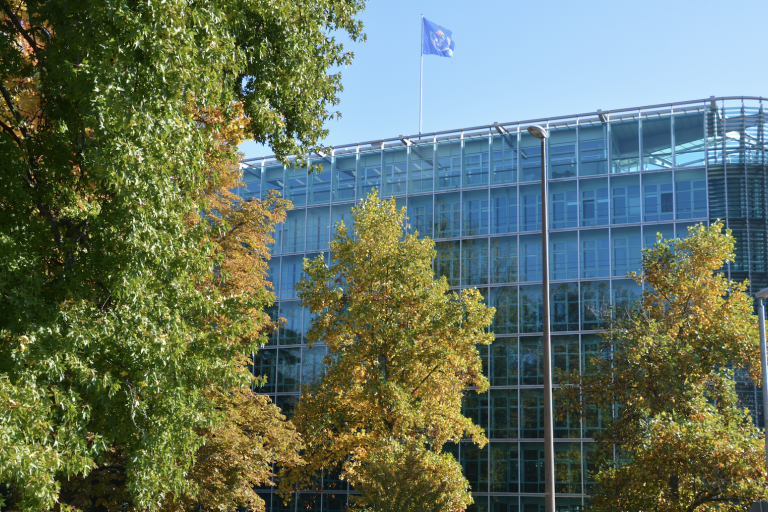Key Outcomes of the 19th Session of the World Meteorological Congress

Congress appointed Prof. Celeste Saulo of Argentina as the first female Secretary-General of WMO. Prof. Saulo has been Director of the National Meteorological Service of Argentina since 2014 and served as the First Vice-President of WMO from 2019 to the end of Cg-19. She will take office for a four-year mandate on 1 January 2024, succeeding Prof Petteri Taalas who has served two four-year mandates.

Governance
Following the appointment of the Secretary-General, the new WMO governance was elected:
- President: Dr. Abdulla Al Mandous, Director General of the United Arab Emirates’ (UAE) National Center of Meteorology and Permanent Representative of UAE to the WMO
- First Vice-President: Mr Daouda Konate, Director of National Meteorology in Cote d'Ivoire and Permanent Representative of Cote d’Ivoire to WMO
- Second Vice-President: Mr Eoin Moran, Director of Met Éireann and Permanent Representative of Ireland to the WMO
- Third Vice-President: Dr Mrutyunjay Mohapatra, Director General of India Meteorological Department and Permanent Representative of India to the WMO.

A new Executive Council was also elected.
Key decision on the way forward
Congress agreed on a path forward for WMO over the next four years that prioritized the Early Warning for All Initiative. It further agreed to scale up services to protect public health given that climate-related illnesses, premature deaths, malnutrition and threats to mental health and well-being are increasing. A new resolution states that “accelerated implementation of life-saving preparedness and early warnings of extreme heat, biological, and other risks to human health, should occur in coordination with the Early Warnings for All Initiative, relevant national health authorities, and relevant WMO research and programmes.”
In a landmark decision, Congress approved a new greenhouse gas monitoring initiative to support urgent action to reduce heat-trapping gases which are fueling temperature increase. The new Global Greenhouse Gas Watch will fill critical information gaps and provide an integrated, operational framework which brings under one roof all space-based and surface-based observing systems, as well as modelling and data assimilation capabilities.
Speakers at Congress were unanimous in welcoming the new WMO Information System 2.0 (WIS 2.0), especially the accessibility it provides to developing and developed countries alike. WIS 2.0 is the framework for Earth Systems data exchange based on the principle that no Member should be left behind. The WIS 2.0 pilot phase started in December 2022 and is scheduled for completion by the end of 2023. WIS 2.0 supports the WMO Unified Data Policy, the Global Basic Observing Network (GBON) and makes international, regional, and national data sharing simple, effective, and inexpensive.
A dedicated two-day Hydrological Assembly during Congress to showcased the central role of hydrology in Earth System approach and in the Early Warnings For All initiative. Congress reinforced its long-term vision for hydrology, approving strengthened flood forecasting initiatives. It also backed the principal goal of the Integrated Drought Management Programme to develop a global coordination of efforts to strengthen drought-monitoring, risk identification, drought prediction and early warning services. It backed the expansion of the existing HelpDesk on Integrated Flood Management and the HelpDesk on Integrated Drought Management (IDM) to support water resources management in its entirety.
Congress further approved a resolution reaffirming the goal of “achieving gender equality and building resilience through the provision of gender-sensitive weather, hydrological and climate services which respond to the specific needs and socioeconomic circumstances of women and men.” Gender balance, diversity and inclusivity will be one of the priorities of WMO’s new Secretary-General when she takes office.

IMO Prize
Australian scientist Dr Sue Barrell accepted the IMO prize, the top WMO which recognizes its predecessor, the International Meteorological Organization founded 150 years ago, at a ceremony which focused on the need to put people at the centre of policy and services and to accelerate gender equality.
Dr Barrell dedicated her award lecture to People. “As we have expanded the Earth systems concept and embraced the digital era, data-related issues have escalated in importance,” said Dr Barrell, who was instrumental in overhauling and updating WMO’s data policy. “We often talk of data as being the lifeblood of WMO. However, we sometimes forget that the beating heart of WMO is its people and that without them, there would be no data, never mind systems, sharing, collaboration, services, research nor innovation.”
Readers can access the Congress documents to get a full picture of the decisions taken at Cg-19, the Nineteenth World Meteorological Congress: Abridged final report with Resolutions will be made available in the WMO Library in the coming months.


